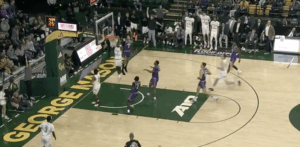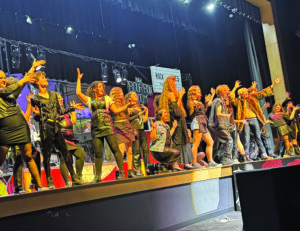
December 26, 2009
So, on this my fourth stint in Afghanistan since 2003, where to begin: is it the always interesting and often extraordinary people one seems to inevitably come into contact with in a place like this; or, a leading edge of the cultural context – the place/plight of women; or, the too-close-for-comfort suicide bomb incident; or, the trip to Jalalabad near the Pakistan border?

Because what happened was so totally unexpected, I’ll start with the situation that offered a glimpse into the place/plight of women in Afghanistan. For those of you who’ve heard me talk about this issue after previous trips, the way women are treated – or should I say mistreated – has disturbed me greatly. In effect, I’ve developed a kind of chip on my shoulder and have been itching for an opportunity to unleash my feelings about this. The trigger turned out to be the return SUV trip to our compound office while our entire team – me, my U.S. colleague, and three local Afghan staff (two men and one woman) was mired in the ever-present Kabul traffic.
The conversation began innocently enough when I asked about why women wear the Blue Burkha that covers them from head to toe, in a sense rendering them invisible. In a flash, the conversation became heated and just as quickly moved to the Koran as the ultimate reason. Predictably, the two men – both very observant Muslims – vehemently declared the justification was in the Koran; most surprising, however, was the woman’s equal vehemence in asserting this was not true. Putting aside her normal culturally induced reserve, she insisted that nowhere in the Koran does it say this, adding that she and other women with whom she had worked in the past made it a point to examine precisely this point. The argument went on for a few minutes – almost entirely in Dari (one of the country’s two major languages), so I had to stop them to follow what they were saying – and ended in an uncomfortable silence.

Later, after we’d returned to the office I seized a moment to follow up with the woman and said I felt a bit awkward for having unintentionally put her in the position that resulted in the angry confrontation. This exchange turned poignant after I further explained how much I detested the way women are treated in Afghanistan, whereupon she answered with tears welling in her eyes that she too felt that way but still loved her country. While she didn’t go into details she added that she had experienced mistreatment as a woman her whole life and always resented it. Another day, she told me she is one of five children – four daughters and one son – and she was the first woman in her family to have gone to college. She said her father strongly opposed this and had forbidden her mother from pursuing higher education when she expressed interest in doing so. She then explained that her other three sisters had followed her in completing college and when I asked what her father now thought about this, she smiled and said he’s proud of all of them.
Next on the list is the suicide bombing that occurred a little before 10:00 a.m. – details like that stick in one’s mind – on December 15th. While it took place about a half mile away the explosion was strong enough that we felt it and were startled by the loud sound – as if someone had slammed the heavy front door on the compound building where we were working in our basement office. I quickly went upstairs and outside and immediately saw a plume of white smoke from the explosion rising above the rooftops of nearby buildings and then the black smoke of the fire that consumed the suicide vehicle and others at the scene. It was sobering, although nothing of consequence happened where we were (a conference upstairs in our building continued uninterrupted). But, it was also hard not to imagine that there had been some loss of life and indeed news reports later that day stated that eight people (four men, four women) had been killed with as many as 40 others injured. Still, there’s nothing remarkable about this particular incident; violence such as this is by no means a daily occurrence in Kabul and the threat of it is “normal.”
So, why write about it here? It’s simply because it’s the first time something like it happened directly “in my world.” It was too close for comfort and spooked me (something colleagues with longer experience in-country say is not at all unusual). At the time and afterward I couldn’t help but recall that the afternoon before the incident our team had been meeting in the offices of an

organization that was just a couple hundred yards from the site of the explosion. While no one was injured, windows in the building were shattered and the offices were damaged. At our compound the immediate drill from our security people was no one goes out for the next two hours and only if necessary thereafter. But, then, the next day things returned to the regular routine. We had a full schedule of appointments in Kabul and simply went about our business. While thoughts of the incident lingered at the start of the day, they quickly receded as we went from place to place. This is part of what foreigners who live and work here simply refer to as the surreal part of everyday life in Afghanistan.
To tell about the three day trip to Jalalabad, I have to explain that the purpose of my work on this assignment was to monitor the data gathering procedures and gauge the progress of two current U.S. Agency for International Development (USAID) agricultural projects. One of the projects is working to rebuild and improve the quality of education in Afghanistan’s sixteen university agriculture faculties. The other is focused on more efficient use of water resources and irrigation to improve agricultural production and farmers’ livelihoods. Thus, much of what I saw was the sites where these projects’ activities were taking place; in the case of the education project that meant spending time at Nangarhar University (on the outskirts of the city) and in the other, at irrigation canals and farm demonstration plots in the countryside. What is always most interesting about this fieldwork are the opportunities presented to meet and talk with project beneficiaries – in this case farmers and members of the Agriculture Faculty – as well as implementing partner’s local staff. And here a picture is worth the proverbial thousand words.
Jalalabad is the capital of Nangarhar Province and is located about 95 miles southeast of Kabul near the border with Pakistan. This proximity to Pakistan has meant that the area is subject to infiltration by suicide bombers and other bad guys, and at times is regarded as being too risky for development activities. For example, the agricultural education project at Nangarhar University we observed had only just recently restarted after having been suspended for about a year owing to security concerns. Relatedly, our work the third day was disrupted by a major morning traffic jam caused by what turned out to be a peaceful demonstration at the provincial government headquarters. The demonstration was a response to an incident the day before in neighboring Laghman province, where ISAF (International Security Assistance Force) soldiers had allegedly killed civilians during an operation against Taliban militants.

Jalalabad itself is a bustling, typically dusty and scruffy Afghan city, but its location near the border and Peshawar on the other side means there’s a visible Pakistani influence in terms of the number of three wheel minivans and minicabs and when one gets behind the facade of the main street into the labyrinthine, narrow arcades filled with imported goods of all types. These latter impressions were obtained during a late afternoon walking tour of one of the main “downtown” markets, as people were winding up their business day and/or shopping before heading home for the evening meal. Aside from the buzz of activity, positive energy, and good vibes, what was striking was the pace of things – how quickly people were moving about – something I don’t recall having seen in the other Afghan cities I’ve been to. I was accompanied on this walk-around by our organization’s assistant for security who was most attentive to my safety. He’s an interesting story in himself – a former Pakistani elite armed forces officer who had served in units assigned to international peacekeeping efforts in Sri Lanka and Ethiopia. In Sri Lanka, he told me, his unit had seen combat and numbers of his comrades were killed around him. Thus, he’s battle hardened and brought that sense of awareness to his efforts in my behalf; I was glued to his hip, so to speak. Perhaps the highlight of our walk was when he negotiated the purchase of two very traditional and recognizable Pawkul hats.
Lastly, the Jalalabad trip was filled with sights and sounds of the countryside and road from and to Kabul. Reflecting the fact that Nangarhar, with its climate allowing for year-round farming, is one of Afghanistan’s most agriculturally prosperous, along the road outside Jalalabad were dozens of stands selling the fruits of an abundant and eye catching cauliflower crop. Also, the road from Kabul to Jalalabad is said to be among the most heavily used throughout the country because of the traffic to and from Pakistan. This was evident in the hundreds upon hundreds of large tankers and trucks filled to overflowing we saw coming and going; and, not incidentally, which is why the 95 mile trip between Kabul and Jalalabad can take as little as 2½ hours when all goes well versus more than 11 hours or more when it doesn’t (as with a project staffer who was coming down to meet with us). Imagine, if you will, a two-lane road with narrow segments winding through steep mountain passes with little clearance on either side and rough hewn tunnels at the entrance of which a stoppage can happen in an instant and become magnified just as quickly because Afghan drivers all try to go around a jam at the same time in true every-man-for-himself fashion. (And, it’s also this way in Kabul where the traffic is typically chaotic not so much because of volume but because everyone drives as if they have the right of way at all times.)
And, finally, a word or two about the extraordinary woman I met at our organization’s X-mas party on December 17th. She is a research scientist/livestock expert who has been working for three-and-a-half years with Afghanistan’s famed Kuchi nomadic herders as part of a USAID-supported project. She was filled with caring and the wisdom of experience as she talked about her work and the travails it typically entails because she is always out and about the countryside. She talked of security concerns as a fact of life and how over time the Kuchi leaders with whom she has developed close ties will often tell her not to go to a certain area or part of town on a given day because they suspect or know it’s not safe. She talked of the tremendous sense of satisfaction that comes from her work but also emphasized the personal struggles she has had to endure when dealing with the mistreatment of women in the Kuchi culture. And, as fulfilled as she is by her time in-country, it was striking that she alluded to the possibility that she might experience some PTSD when she returns home.
And, so it went during these last three weeks….











